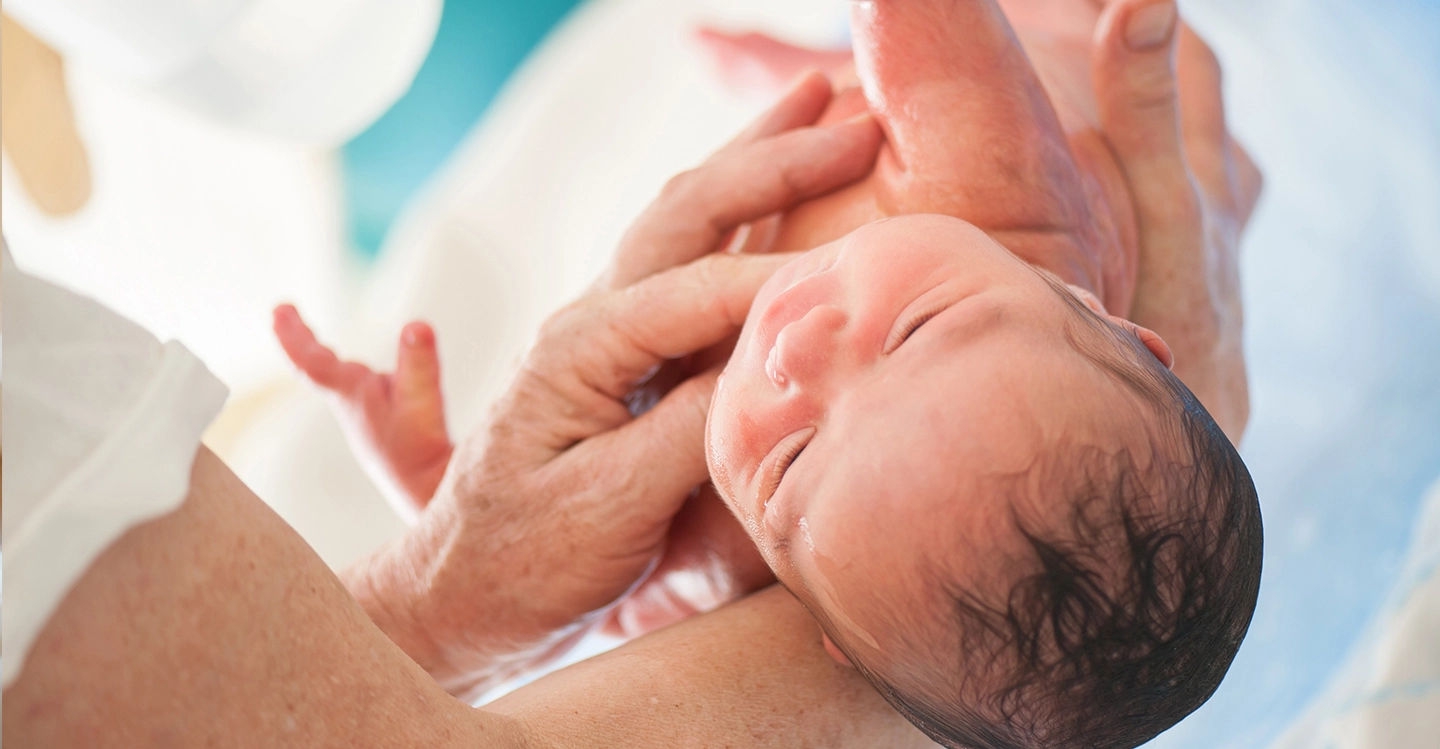What is a water birth?
A water birth is when a woman gives birth to her baby while submerged in a body of water. The term can be a little confusing because sometimes mum will go through her first stage of labour in the water as a substitute for pain medication, and then she'll exit for the actual birth. This will be either pre-planned or potentially due to a complication.
Some hospitals insist that the birth occurs out of the water, while others allow for the baby to be delivered under the water. Only experienced doctors and midwives can conduct a water birth
Why do some women choose a water birth?
Having a water birth has potential benefits in making the labour easier to bear. Throughout their pregnancy, most women will enjoy the sensation of having a bath for the weightlessness they feel and the pressure the water removes from areas of their body under strain. This can be reflected during the actual birth in the way the body reacts and positions itself in response to contractions.
Some women who opt for a birth without the use of painkillers will also prefer the benefits of water births for pain control. The pleasurable sensations associated with being in water can help release natural pleasure hormones, which are certainly welcome when most water births don't allow for pain medicine or epidurals.
Being in water also softens the skin around the perineum, removing some of the pressure on the pelvic floor muscles and decreasing the chance of tearing, which can have lasting implications for women. The other benefit warm water promotes is increased blood circulation and oxygenation of the blood, assisting with the muscles' workload and providing better circulation for the baby at birth,
Ultimately, however, water births are not necessary for any particular reason and remain an individual choice.
Are there any long term benefits to water birth babies?
Studies have not shown conclusively whether there any long term benefits to the baby. Evidence is circumstantial and in the end having a water birth is mostly a choice for a mother to make in regards to her labour.
Are there any risks to the baby in a water birth?
Very few. One of the biggest concerns about water births is whether the baby is at risk of drowning. Up to around 6 months of age, babies are equipped with a dive reflex that closes off their airways when liquid hits the back of their throat. This helps with swallowing and prevents them from breathing in their milk. As long as the baby doesn't surface before submerging again, to them it will be as though they are still in the womb and they will be completely fine.
Rarely, a baby might be at risk of meconium aspiration. This occurs if the baby inhales the water in the tub after they have defecated in it. Hospitals monitor closely the water's meconium levels, but remove the baby from the water as quickly as possible anyway.
The only risks likely to arise usually involve the pregnancy itself. For example, if the doctor identifies that an emergency c-section is required, movement to a hospital bed would be complicated by being in the tub.
Provided the birth is monitored and assisted by trained doctors or midwives, such problems are unlikely to cause major issues, and mother and baby will be at little risk.
Where can I have a water birth?
Ask your hospital whether they have birthing pools. Many larger hospitals do and, provided you meet the requirements of the particular hospital, you will be able to opt for a water birth. Some women who choose home births might opt to use the bath tub for their water birth.
In general, however, hospitals are safer and better-equipped for water births and any contingencies that could arise. Women choosing home water births should consult thoroughly with their midwives in regards to their experience and the appropriateness of the home's facilities.
Why mightn't I be able to have a water birth?
Whether a water birth is inappropriate or unadvised will vary in specifics from location to location. In general, however, the reasons barring a water birth regard the safety of mum and the baby.
Water births are not recommended if:
- You have had previous labour complications
- You have a BMI over 30
- Your baby is coming early
- You have pre-existing medical conditions such as high blood pressure or diabetes
- You have an infection, such as herpes
- You are having multiple babies
In the end, water births are a personal choice for women, but one that must be made with regards to a small level of risk. If a water birth is something you or your partner is considering, approach your hospital, doctor or obstetrician with any questions you might have. They will be best positioned to consult with you and discuss the prospects of a water birth for your pregnancy.
*The above should not be considered a substitute for professional medical advice. Always seek the advice of trained medical professionals.



